DPC
Governance
The DPC is governed by an Executive Board and is accountable to members through a Representative Council and a series of thematic Sub-Committees. It employs eleven staff.
President
-
Richard Ovenden OBE, Bodleian Library, University of Oxford
Representative Council
The DPC Representative Council is formed of a delegate from each of our full members. It ensures that the DPC remains tightly focussed on its strategic plan, and that the strategic plan is relevant to members' emerging needs. It meets every three months, immediately before or after the Executive Board to receive and review the DPC's workplan and progress reports.
Executive Board
The Executive Board oversees delivery of the DPC strategic plan and is responsible for governance and compliance. It meets quarterly to receive reports on major risks and set forward financial plans. The Executive Board comprises 4 officers (Chair, Vice Chair, Financial Director, Executive Director); 4 Sub-committee Chairs (Advocacy, Workforce Development, Research, Management); and 4 'Ordinary' members. Directors are not representatives, they are required to act in the best interests of the DPC and have legal responsibilities for it. A register of directors interests is maintained to ensure neutrality. The Chair and Vice Chair are elected annually at the AGM, Executive Diretor and Financial Director are are ex-officio with continuous appointment. Other directors serve for a maximum term of 6 years (with an option to renew but only after one year hiatus), and are appointed subject to a competency-based recruitment framework.
-
Prof Jane Winters - Chair (December 2023)
-
Michelle Donoghue - Director for Workforce Development (April 2023)
-
Tim Gollins (March 2024)
-
Edith Halvarsson (March 2022)
-
Leslie Johnston (March 2022)
-
Tim Keefe - Financial Director and Chair of Management Sub-Committee (January 2018*)
-
Dr William Kilbride - Executive Director (January 2018*)
-
Kate Murray - Vice Chair (March 2021)
-
Roxana Maurer - Director for Research (October 2019)
-
Vicky Plaine (March 2023)
-
Paul Stokes - Director for Advocacy and Community Engagement (April 2020)
-
Dr Alicia Wise (April 2023)
-
Jaye Weatherburn, University of Melbourne - Observer
Register of Directors Interests can be viewed here (member login required).
*Continuous appointments Ex Officio
Sub-Committees
The DPC has five Sub-Committees drawn from the membership which meet every 3 months or so. Each is charged with oversight of one or more of the DPC's strategic six goals. Each one is chaired by a Board director, has 6-12 member representatives and each one supports the work of a DPC staff member. The Sub-Committees make important decisions about the work of the coalition such as the awards of grants or review of funding proposals, and they have detailed involvement in the development of our workplan in each area.
-
Australasia Stakeholder Group (Chair: Jaye Weatherburn)
-
Advocacy and Community Engagement Sub-Committee (Chair: Paul Stokes, Director for Advocacy and Community Engagement)
-
Management and Governance Sub-Committee (Chair: Tim Keefe, Financial Director)
-
Good Practice Sub-Committee (Chair: Roxana Maurer, Director for Research)
-
Workforce Development Sub-Committee (Chair: Michelle Donoghue, Director for Workforce Development)
Sub-Committee membership is refreshed at the start of every calendar year.
See all Sub-Committee members.
Staff
-
Dr Amy Currie, Training and Grants Manager
-
Dr Andrew Jacskon, Preservation Registries Technical Architect
-
Dr William Kilbride, Executive Director
-
Sharon McMeekin, Head of Training and Skills
-
John McMillan, Head of Administration and Finance
-
Sarah Middleton, Head of Advocacy and Communication
-
Jenny Mitcham, Head of Good Practice and Standards
-
Ellie O'Leary, Administration Manager
-
Michael Popham, Digital Preservation Analyst
-
Angela Puggioni, Community Engagement Manager
-
Karyn Williamson, Digital Preservation Analyst
-
Paul Wheatley, Head of Research and Practice
-
Robin Wright, Head of DPC Australasia-Pacific
Previous Office Holders
-
Kevin Ashley (Vice Chair 2012-2022)
-
Neil Beagrie (Secretary 2002-2003)
-
Dr Juan Bicarregui (Chair 2018 - 2023)
-
Frances Boyle (Executive Director 2008-2009)
-
Dame Lynne Brindley (Chair 2002-2006)
-
Reg Carr (Vice Chair 2002-2005)
-
Maggie Jones (Secretary 2003-2006)
-
Patricia Kernaghan (Vice Chair 2011)
-
Patricia Killiard (Vice Chair 2012)
-
Bruno Longmore (Vice Chair 2006-2010, Acting Chair 2009)
-
Laura Mitchall (Chair 2013-2017)
-
Ronald Milne (Vice Chair 2005- 2006, Chair 2006-2009)
-
Richard Ovenden OBE (Chair 2009-2013)
-
Najla Semple (Secretary 2006-2007)
TIMBUS
 TIMBUS was a research project co-funded by the European Commission. It addressed the challenge of digital preservation of business processes and services to ensure their long-term continued access. TIMBUS analysed and recommended which aspects of a business process should be preserved and how to preserve them. It delivered methodologies and tools to capture and formalise business processes on both technical and organisational levels. This included their underlying software and hardware infrastructures and dependencies on third-party services and information. TIMBUS aligned digital preservation with well-established methods for enterprise risk management (ERM), feasibility and cost-benefit analysis, and business continuity management (BCM). Visit the TIMBUS website for more information.
TIMBUS was a research project co-funded by the European Commission. It addressed the challenge of digital preservation of business processes and services to ensure their long-term continued access. TIMBUS analysed and recommended which aspects of a business process should be preserved and how to preserve them. It delivered methodologies and tools to capture and formalise business processes on both technical and organisational levels. This included their underlying software and hardware infrastructures and dependencies on third-party services and information. TIMBUS aligned digital preservation with well-established methods for enterprise risk management (ERM), feasibility and cost-benefit analysis, and business continuity management (BCM). Visit the TIMBUS website for more information.
Project highlights:
- A Risk Management Approach to Preservation of Business Processes explores the application of risk assessment to the digital preservation of business processes.
APARSEN
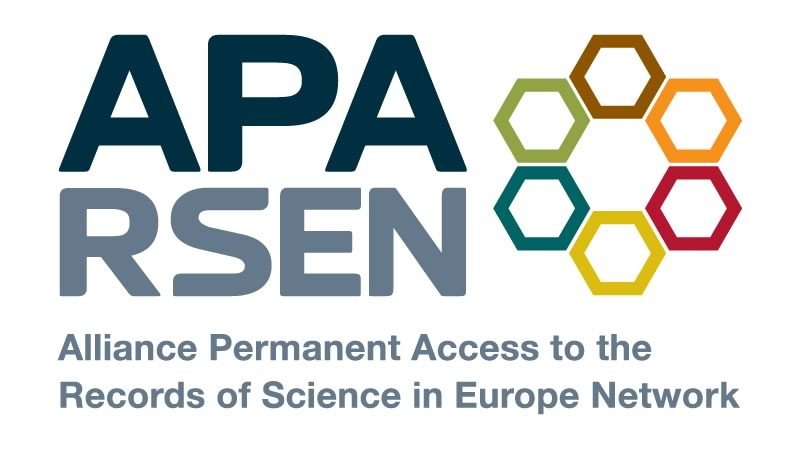 APARSEN was a Network of Excellence funded by the European Commission, which ran from January 2011 to December 2014. DPC had responsibility for the 'APARSEN Training' work package and had a range of interests in other elements of the network. During the course of the project the DPC coordinated 6 training events, including 2 week-long summer schools. Visit the APARSEN website for more information.
APARSEN was a Network of Excellence funded by the European Commission, which ran from January 2011 to December 2014. DPC had responsibility for the 'APARSEN Training' work package and had a range of interests in other elements of the network. During the course of the project the DPC coordinated 6 training events, including 2 week-long summer schools. Visit the APARSEN website for more information.
4C
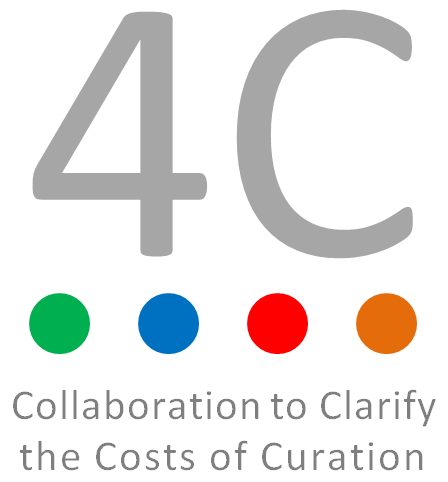 4C - the 'Collaboration to Clarify the Costs of Curation' was aimed at helping organisations across Europe invest more effectively in digital curation and preservation. Research in digital preservation and curation has tended to emphasise the cost and complexity of the task in hand. 4C reminded us that the point of this investment is to realise a benefit. With this in mind the 4C research encompassed related concepts such as ‘risk’, ‘value’, ‘quality’ and ‘sustainability’ leading to the conclusion that organisations that understand this will be more able to effectively control and manage their digital assets over time, but they may also be able to create new cost-effective solutions and services for others. Visit the 4C website for more information.
4C - the 'Collaboration to Clarify the Costs of Curation' was aimed at helping organisations across Europe invest more effectively in digital curation and preservation. Research in digital preservation and curation has tended to emphasise the cost and complexity of the task in hand. 4C reminded us that the point of this investment is to realise a benefit. With this in mind the 4C research encompassed related concepts such as ‘risk’, ‘value’, ‘quality’ and ‘sustainability’ leading to the conclusion that organisations that understand this will be more able to effectively control and manage their digital assets over time, but they may also be able to create new cost-effective solutions and services for others. Visit the 4C website for more information.
Project highlights:
- The 4C Roadmap: an outline of the steps that should be taken in the 5 years leading up to 2020, in order to maximise the efficiency of digital curation.
- Curation Costs Exchange: Understanding and comparing digital preservation costs to support smarter investments.
VeraPDF
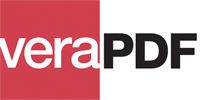 The veraPDF consortium will deliver a definitive validator for PDF/A: an authoritative corpus of test files establishing the objective frame of reference for validation of all parts and conformance levels of PDF/A, an open¬source, and a purpose¬built validator and policy checker to implement the collecting policies of memory institutions. We expect a vibrant community will develop to sustain these efforts.
The veraPDF consortium will deliver a definitive validator for PDF/A: an authoritative corpus of test files establishing the objective frame of reference for validation of all parts and conformance levels of PDF/A, an open¬source, and a purpose¬built validator and policy checker to implement the collecting policies of memory institutions. We expect a vibrant community will develop to sustain these efforts.
The veraPDF consortium brings together a unique network of stakeholders with complementary perspectives from existing collaborative efforts in the PDF industry (through the PDF Association and its association with the respective ISO committees), small and large memory institutions (through the Open Preservation Foundation and Digital Preservation Coalition), and commercial software service providers (Dual Lab and KEEP SOLUTIONS).
Over time, veraPDF will dramatically reduce costs associated with ingesting, quality¬controlling, and managing PDF documents through normalization of the preservation¬ready capabilities of PDF document creating and editing suites worldwide.
‘Preserving Social Media’ and ‘Preserving Transactional Data’
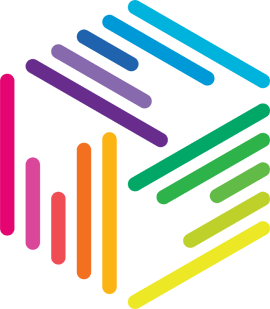 A study commissioned by the UK Data Service as part of their 'Big Data Network' programme on the preservation concerns of two types of big data: 'Preserving Social Media' and 'Preserving Transactional Data'. Preserving Social Media investigated current methods for capturing and archiving this new and novel form of data within the confines of strict platform Terms of Service and increasing technological demands. Preserving Transactional Data looked at the technical, legal, and ethical complications of capturing, curating, and sharing this rich source of data, defined as data captured in the course of everyday activities online such as filling out a form on a government website or making a loan payment. Recognising the value of large amounts of user-generated data in machine-readable formats, both of these studies provided guidance to overcome the challenges posed by capturing social media and transactional data, derived from platforms and programmes built on quickly changing technologies with frequently updated data policies.
A study commissioned by the UK Data Service as part of their 'Big Data Network' programme on the preservation concerns of two types of big data: 'Preserving Social Media' and 'Preserving Transactional Data'. Preserving Social Media investigated current methods for capturing and archiving this new and novel form of data within the confines of strict platform Terms of Service and increasing technological demands. Preserving Transactional Data looked at the technical, legal, and ethical complications of capturing, curating, and sharing this rich source of data, defined as data captured in the course of everyday activities online such as filling out a form on a government website or making a loan payment. Recognising the value of large amounts of user-generated data in machine-readable formats, both of these studies provided guidance to overcome the challenges posed by capturing social media and transactional data, derived from platforms and programmes built on quickly changing technologies with frequently updated data policies.
Project highlights:
E-Ark
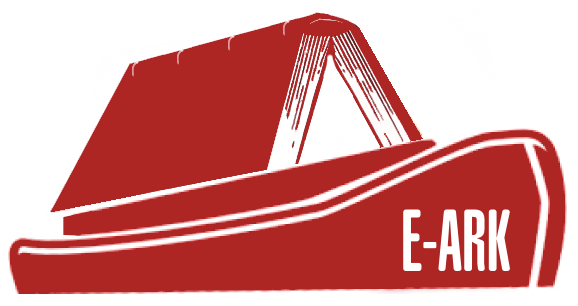 In co-operation with commercial systems providers, E-ARK will create and pilot a pan-European methodology for electronic document archiving, synthesising existing national and international best practices, which will keep records and databases authentic and usable over time.
In co-operation with commercial systems providers, E-ARK will create and pilot a pan-European methodology for electronic document archiving, synthesising existing national and international best practices, which will keep records and databases authentic and usable over time.
The methodology will be implemented in an open pilot in various national contexts, using existing, near-to-market tools, and services developed by the partners. This will allow memory institutions and their clients (public- and private-sector) to assess, in an operational context, the suitability of those state-of-the-art technologies.
Our objective is to provide a single, scalable, robust approach capable of meeting the needs of diverse organisations, public and private, large and small, and able to support complex data types. E-ARK will demonstrate the potential benefits for public administrations, public agencies, public services, citizens and business by providing simple, efficient access to the workflows for the three main activities of an archive - acquiring, preserving and enabling re-use of information.
- Visit E-ARK services for information governance at the Knowledge Centre
- Visit the E-ARK website for more information
Member List
About the Digital Preservation Coalition
The Digital Preservation Coalition (DPC) is a registered company (Registered no: 4492292) and charity (Charity no. SC051077).
We are a membership organisation, managed by a small team of full time staff and overseen by a Board of Directors appointed from our Full Members. Our primary function is to deliver on behalf of our members. We were established in 2002 as a collaboration between a number of agencies operating in the UK and Ireland. Although our program and our membership has changed a lot since 2002, we remain true to the founding principles of community oversight described in our Articles of Association and Memorandum of Incorporation. The majority of our income is still derived from the annual subscriptions which members pay: and our workplan is scrutinised and approved by our members annually.
Our Vision
The Digital Preservation Coalition is building a welcoming and inclusive global community, working together to bring about a sustainable future for our digital assets.
Our Mission
We enable our members to deliver resilient, sustainable and useful long-term access to digital content and services, helping them to access and use digital materials beyond the limits of technical obsolescence, media degradation and organizational change.
We raise awareness of the strategic, cultural and technological challenges which our members face, independent of the interests of solution providers, and we encourage collaboration for mutual benefit and the greater good.
We sustain and deliver these aims through advocacy, community engagement, workforce development, good practice and good governance. These actions create, empower, structure and extend a global community, working together for a sustainable digital legacy. This ambition for the greater good underpins our charitable purpose.
Our Objectives
Our Strategic Plan for 2022 - 2027 defines five objectives:
-
Community: by offering a warm welcome to all agencies and individuals with an interest in digital preservation and providing an efficient and effective platform for meaningful and sustained professional exchange.
-
Advocacy: by working towards a climate of public and institutional policy which is better informed and better inclined towards digital preservation.
-
Workforce Development: by providing opportunities for our members to acquire, develop and retain competent and responsive workforces that are ready to address the challenges of digital preservation.
-
Good Practice: by supporting our members towards greater maturity in digital preservation through knowledge exchange, continuous improvement, horizon scanning, advice on standards, authoritative publications, and engaging and informative events.
-
Accountable, Sustainable and Dynamic Governance: by maintaining and enhancing our organizational functions and structures to ensure good governance.
These objectives are realised in our current DPC Prospectus 2023 - 2024 (also available in Arabic , Chinese , French , German and Spanish ).
Our Values
The DPC’s vision correlates closely to the UN Sustainable Development Goals of ‘a better and more sustainable future for all people and the world by 2030’. We have explicitly mapped our values and objectives to these goals, both in what we do and the leadership we seek to provide. Members and colleagues who engage with the DPC should recognize our values in their experience of the DPC and may be asked to adopt them when working with us or interacting through us.
In all that it does, the DPC will:
-
Care for our members, resources, people and environment
-
Maintain neutrality in respect to solutions, approaches, sectors, suppliers and vendors
-
Be open, transparent and accountable to members
-
Amplify the needs and successes of our members
-
Be open to all stakeholders with a presumption of positive intent
-
Respond to the needs of members in the delivery of services
-
Be authoritative, current and concise in all our publications and communications
-
Be respectful, welcoming, inclusive and transparent in all our dealings
-
Be evidence-led, making effective use of data in decision making
The DPC will act on its values and be transparent with respect to how they have been implemented by building these into our work plans and reporting explicitly to members about them.
Our Policies
To enable us to meet these goals, the DPC maintains necessary policies, clearly and openly stating the organisation's commitment to issues such as privacy, inclusion and diversity. Read more.
Universitatsbibliothek Bern joins the Digital Preservation Coalition
Added on 1 August 2016
The DPC is delighted to welcome the University of Bern, Switzerland as its newest associate member.
The University Library of Bern currently provides books and journals in print and electronic format as well as access to subject-specific databases. The team at Bern also aims to open its archive to the university community, incorporating access to more complex objects and formats in the digital editions it holds.
Marion Prudlo, the University of Bern’s Head of E-Library Service Centre explains why the University chose to join the Coalition. “Joining the DPC will move us forward another step towards our goal of providing a trustworthy preservation infrastructure to the university community in Bern. We are looking forward furthering our own knowledge, but to also engaging more with the digital preservation community at large.”






























































































































